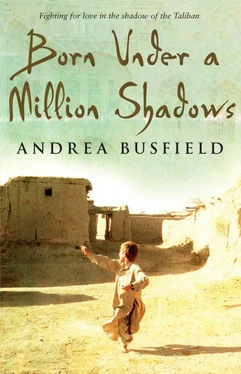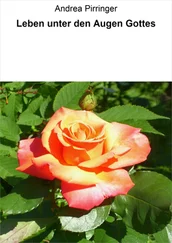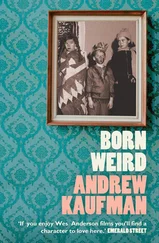In the main these were orders I tried to follow out of respect for my mother—in Afghanistan our mothers are worth more than all the gold that hides in the basement of the president’s palace—but it wasn’t easy. And though I knew she wouldn’t beat me if I disobeyed her, unlike Jahid’s father, who seemed to think he had a God-given right to hit me in the face on any day the sun came up, she would have that look in her eyes, a disappointed stare I suspected had been there from the day I crept out of the shadow.
I am only a boy, but I recognized our life was difficult. Of course, it had always been the same for me; I knew no different. But my mother, with her memories of deep-red cushions and yellow roses, was trapped by a past I had little knowledge of, so I spent most of my days on the outside of her prison, looking in. It had been like this for as long as I could clearly remember, yet I like to think she was happy once: laughing with my father by the clear waters of Qargha Lake, her green eyes—the eyes I inherited—smiling with love, her small hands, soft and clean, playing with the hem of a golden veil.
My mother was once very beautiful—that’s what my aunt told me in a surprising burst of talking. But then the shadow fell, and although she never said so, I guessed my mother blamed me. I was a reminder of a past that had dragged her into the flowerless hell that was her sister’s house, and from what I could tell, my mother hated her sister even more than she hated the Taliban.
“She’s just jealous!” my mother once screamed, loud enough for my aunt to hear in the next room. “She’s always been jealous—jealous of my ways, of the fact that I married an educated man, of our once happy life… and I long got over apologizing for it. If Allah blessed her with the face of a burst watermelon and a body to match, it is not my fault!”
“They’re women, they’re born that way,” Jahid told me one afternoon as we escaped once again from the screams and insults flying around the house to steal from the foreigners in the center of town. “They are never happier than when they are fighting with each other. When you are older you will understand more. Women are complicated, that’s what my father says.”
And maybe Jahid was right. But the argument that had just taken place had more to do with money than being women. My aunt wanted us to pay rent, but we could barely afford the clothes on our backs and the food in our bellies. The few afs my mother earned from cleaning houses along with the dollars I picked up in the street were all we had.
“Maybe if you gave a little more of your dollars to your mother she wouldn’t be so angry with my mother,” I suggested, which was obviously the wrong thing to suggest because Jahid punched me hard in the head.
“Look, you little bastard, my mother gave your mother a roof when you had no place to stay. Coming to our home begging like gypsy filth, forcing us to give up our room and put food in your idle fucking bellies. How do you think we felt? If we weren’t good Muslims, your mother would be pimping your ass to every fucking homo who passed by. In fact, you want to help? Go pimp your own fucking ass! Pretty boy like you should make enough afs to keep the women happy.”
“Yeah?” I spat back. “And maybe they’d pay just as much money to keep the donkey’s ass that’s your face away from them!”
And with that I ran off, leaving my cousin shouting curses about camels and cocks in my direction while dragging his dead leg in fury behind him.
That day I ran from Jahid until I thought my legs would die. By the time I reached Cinema Park I could barely breathe, and I realized I was crying—for my mother and for my cousin. I had been cruel. I knew that. I understood why he was saving his money, why he buried it under the wall when he thought no one was looking. He wanted a wife. “One day I will be married to the most beautiful woman in Afghanistan,” he always bragged. “You wait. You’ll see.” And that’s why he needed the money, because with a face like his he’d have to come up with a hell of a dowry to make that dream come true. It’s not even as if he could rely on the force of his personality to win over a wife. He had the foulest mouth I had ever heard, even more so than the National Police who cluttered the city’s roundabouts, barking curses and demanding bribes, even from crippled beggars. In fact, the only other thing that could have saved Jahid was school, where he’d shown an unlikely talent. He threw himself into his learning as only a boy with no friends can do. But then the torment and the beatings he took day after day finally drove him away, and he became increasingly hard.
My country can be a tough place to live in if you’re poor, but it’s even tougher if you’re poor and ugly. And now Jahid was like stone, a stone that knows he will never find a woman who will willingly marry him, but whose father might agree for the right price.
“Come on, Fawad, let’s go to Chicken Street.”
Through my tears I saw Jamilla standing before me, the sun throwing an angel’s light around her body. She was small, like me. And she was pretty.
Jamilla reached for my hand, and I dragged myself up from the ground to stand by her side, wiping my face dry on the sleeves of my clothes.
“Jahid,” I said by way of explanation.
Jamilla nodded. She didn’t talk much, but I guessed she would grow into that if Jahid was right about the ways of women.
Jamilla was my main rival on Chicken Street. She cleaned up with the foreign men, who melted under the gaze of her big brown eyes, while I cleaned up with the women, who fell in love with my big green eyes. We were a good team whose pickings pretty much depended on who was passing by, so if we found ourselves working on the same day we would split our money.
Fridays were the best, though. It was a holiday, there was no school, no work, and the foreigners would come, stepping out of their Land Cruisers to trawl Kabul’s tourist area for souvenirs of “war-torn” Afghanistan: jewelry boxes made of lapis lazuli; silver imported from Pakistan; guns and knives apparently dating back to the Anglo-Afghan wars; pakols, patus , blankets, carpets, wall hangings, bright-colored scarves, and blue burkas. Of course, if they walked twenty minutes into the heaving mess of Kabul’s river bazaar, they would find all these items for half the price, but the foreigners were either too scared or too lazy to make the journey—and too rich to care about the extra dollars that would feed most of our families for a week. Still, as Jahid noted, their laziness was good for business, and Chicken Street was their Mecca.
Along with the aid workers, now and again we would see white-faced soldiers hunched over the counters of stores selling silver, looking at rings and bracelets for the wives they’d left behind in their own countries. They were mainly tall men with big guns, metal jackets, and bowl-shaped helmets strapped to their heads. They came in groups of four or five, and one would always stand guard in the street as the others did their shopping, watching out for suicide bombers. “America good!” we would shout—a trick that always earned us a couple of dollars. Money in hand, we would then move away, farther down the street, just in case there were actually suicide bombers around.
Most of the other foreigners, though, were less interested in America, so we used different tactics to win their dollars, following them as they weaved their way from shop to shop and yelling out all the English we could remember. “Hello, mister! Hello, missus! How are you? I am your bodyguard! No, come this way, I find you good price.” And we would take their hands and drag them to a store where we could earn a few afs’ commission. Most of us were on the payroll of four or more shopkeepers, but only if we brought in customers. Therefore, if the foreigners didn’t bend to our thinking, we would follow them into stores, tutting and shaking our heads in pretend concern, but carefully out of sight of the owners. “No, missus, he is thief, very bad price. Come, I show you good price.” We would then lead them to the shops that paid us, telling the owners of the figure given by one of their rivals so that he could begin his bargaining at a lower but still profitable price.
Читать дальше












